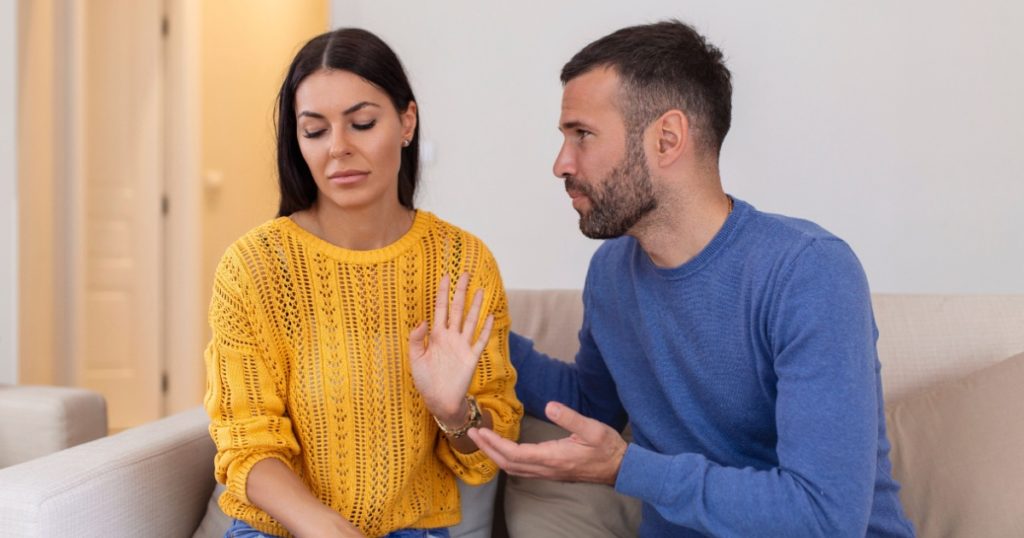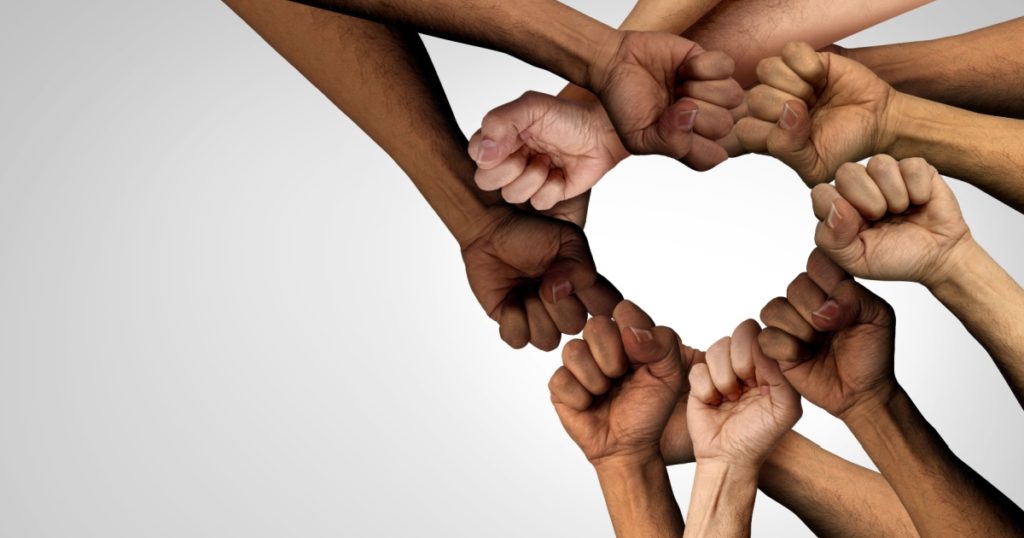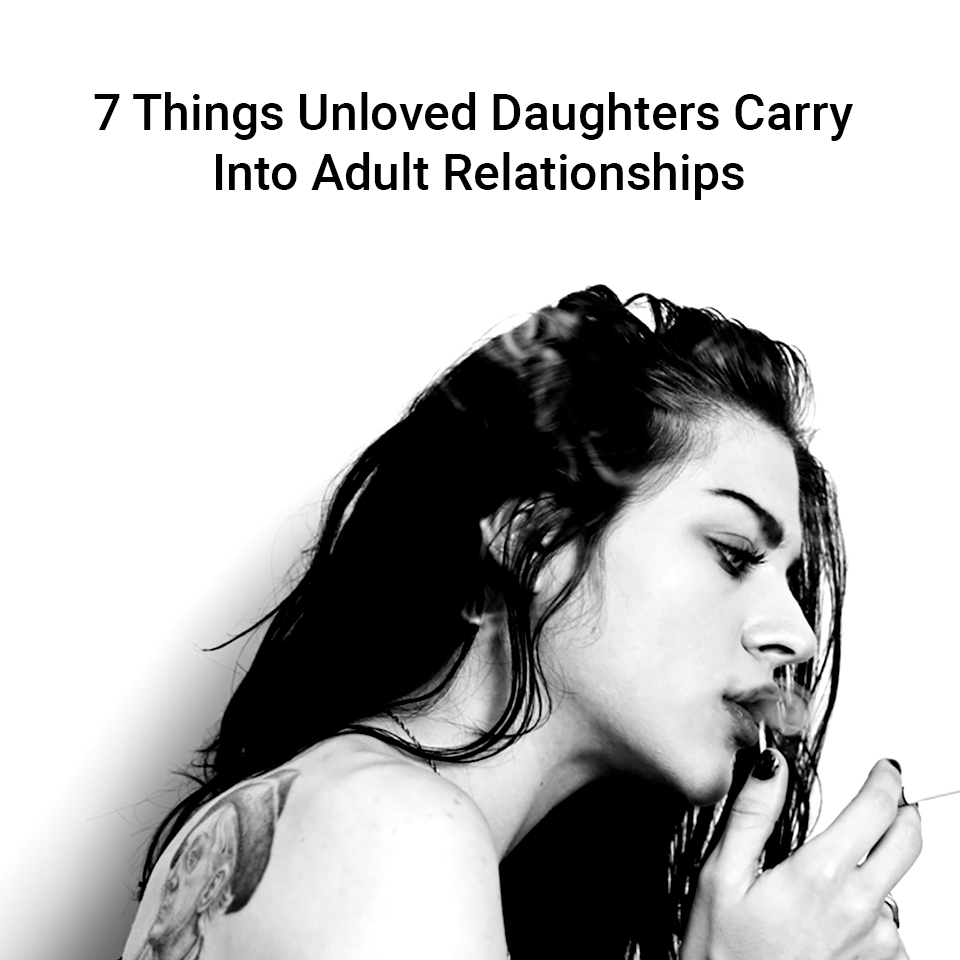Many people can’t fathom the notion of parents not loving their children. However, for reasons unbeknownst, there are occasional disconnects. Unsurprisingly, growing up and feeling unloved often negatively impacts one’s future and well-being. Here are 7 everyday things that result from an adult daughter facing years of excessive damage done during childhood.
1. Feeling Unloved Leads to Feeling Doubt

A woman who has grown up feeling unloved will often also have trouble feeling secure within herself or her relationships. In fact, in many cases, a woman who struggles with feelings of being unloved may not even know themselves well enough to understand themselves. They won’t know who they are as a person or their needs. As a result, needs can become silenced until they’ve gone overlooked and continued to cause more damage. She’ll question her own worth despite how amazing, successful, intelligent, or talented she may be.
2. Doubt Leads to Trust Issues

When people grow up feeling unloved by their parents, it causes them to question their own self-worth. As such, feeling uncertain about one’s own self can also cause one to question the intentions of another. This includes the person with whom they’re in a relationship. Moreover, a woman whose parents made her feel unloved, also put it in her head that no one else would ever truly love her either.
3. Trust Issues Lead to False Expectations

In the same way that a woman who grew up feeling unloved will struggle to trust her partner, she’ll also struggle to feel like the relationship will be successful. She’ll always be waiting for it to unravel. As a result, she may stand out, or it may be difficult for her to open up.
4. Unloved Emotions

Growing up feeling unloved can cause a variety of emotional struggles, including the inability to feel or express those emotions. More than likely, a woman in this position also grew up feeling like her thoughts, feelings, needs, or emotions didn’t matter. As such, it may be difficult to allow herself to be vulnerable and allow another person the opportunity to see her emotional side. In the same way, a woman who felt unloved growing up will struggle with vulnerability; she will also struggle with boundaries. Somewhere along the way, someone reinforced the idea that her boundaries didn’t matter or weren’t worth respecting. As a result, she may struggle in personal and professional relationships, never truly learning to speak up for herself. Alternatively, because she can’t relate to what it’s like to have boundaries, she may also cross someone else’s boundaries without even realizing it.
5. Normalizing Behaviors

When women, or even men, grow up feeling unloved, in an abusive environment, or neglected, they often make the mistake of normalizing their trauma. While it’s impossible for everyone to come out of childhood totally unscathed, in healthy and happy homes, there’s an even balance of power that cultivates an environment in which children feel secure, loved, and validated.
6. Being Unloved Causes Questionable Love

As previously noted, a woman who has struggled with feeling unloved since childhood may be incredibly reserved with her emotions or open up about them. Another side effect of the damage caused by feeling unloved is a woman’s ability to say, “I love you.” Whether or not the person says it first, it will be difficult for a woman to say back or even believe without previous behaviors and actions to back that.
7. Struggling to Let Go

Growing up feeling unloved may make it more difficult for a woman to let go. To let go of the past, let go of the things that have hurt her. Or even to let go of the people who hurt her. Although it doesn’t make sense from a logical standpoint, growing up unloved can lead to psychological compulsions. These compulsions prevent someone from letting go. Another extreme and materialistic example is someone who hoards everything: trash, gifts from former partners, magazines dated back to seemingly happier times, and so on.
What is Needed Instead

Women who exhibit any of these signs or have admittedly grown up in a home where they felt unloved face numerous obstacles. However, there are some simple things one can do as a partner, friend, or colleague that will help them feel more supported and comfortable. Remind one another about the admirable or lovable qualities they possess and point out their accomplishments. Reinforce the ideas that they belong, are loved, talented, attractive, etc. Moreover, an occasional reminder of how far they’ve come from the toxicity of their childhood and how proud the hurt child inside them would be if they could have taken a look at themselves today. Lastly, although this article is geared toward women, men too can come from a damaging background and can also benefit from being treated with more love, compassion, understanding, or grace.
